|
THE UNSEEN FACES SERIES: 4. BHOOPALI Bhoopali Nisal was fast asleep when her father answered the telephone about 1.30 a.m. on November 16, 1995, at their Ahmednagar residence. Without telling her anything, he immediately started. His destination: Bhoopali’s elder sister Deepa’s place in Pune, where he had bid bye to Deepa just a few hours before. Where he would now reach to find her dead. At 19, married for about a year, Deepa was full of life—astronomer, actress, photographer, poet, dancer, musician, state-level badminton and basketball player, and studying-to-be a polymer engineer. True to her name, Deepa was a lamp of happiness who lit up lives around her. For Bhoopali, tai was more than a sister, older and wiser. She was parent, friend and guide. A relationship of deep love that only got stronger even after Deepa, much to the surprise of everyone, agreed to an early marriage when a close family friend proposed. Violence that left no sign “The violence started just about three months after the marriage. However, there was never any mark of the beating she got on her body. I was 15 then, and like everyone else, I hoped things would settle down and my dear tai would be happy. Every night at 10 p.m. we would both talk over the phone, sharing everything,” Bhoopali recollected. “Finally, when she met Papa the day before she died, she told Papa that it was getting too much. They decided that after appearing for her last paper in the examination, a week away, she would return home.” “The news of Deepa’s death was such a shock that I lost my ability to speak for a few days,” Bhoopali remembered. After a couple of days, her father asked Bhoopali, “Do you believe that your tai would commit suicide?” Bhoopali was emphatic, “No way!” “Then what are you sitting around for?” her father replied. “Get up! We have to fight!” The fight begins Ten years of struggle followed. Countless visits to the court, police, lawyers, VIPs, anyone willing to listen and help them get justice. Bhoopali put aside any thought of her own career or life. She had dreams of studying aeronautics in Chennai. With the case on, she was tied to Ahmednagar and Pune. She settled for a Diploma in Mechanical Engineering from Ahmednagar in 2000. Her father too ended up paying less attention to his construction business. The fight demanded every moment of their time, and tested every fibre of their patience and determination. “It was so frustrating how the system worked against you. We simply did not have the resources. I remember poring over medical books and talking to doctors to establish that the nature of the brain haemorrhage the autopsy had revealed indicated not an overdose of contraceptive pills, as the lawyers tried to establish, but trauma.” Regardless of the setbacks, young Bhoopali was as determined to keep the fight going as her father, if not more. Service as salve During their struggle, they got acquainted with others who were also fighting a seemingly hopeless fight against an uncaring system. “There were so many people, many of them women, with zero support, fighting on in the hope of getting justice. In comparison, even though we were not rich in terms of resources, we had our friends and family with us. They were totally lost. Papa thought the best we could do to honour tai’s memory was to do something to empower people with education and guidance.” They set up the Deepa Nisal Smruti Pratishthan (Deepa Nisal Memorial Foundation), a year after Deepa’s demise. Over a period of time, the Pratishthan got into several activities, all based in Ahmednagar. Support and education One of the first institutions the Pratishthan set up was a public library and a study centre. “Papa strongly felt that the answer to gender discrimination and domestic abuse lay in good, early education,” Bhoopali explained. “Presently, the library has more than 15,000 books. The study centre benefits those who lack the space or the books to study at home. It has been very useful to many students from various parts of Maharashtra, especially those who are preparing for MPSC and UPSC examinations. Some of those who made good use of this are now occupying high posts in government service. Tai would have been proud.” Nyayarth is another Pratishthan venture that provides guidance and counselling to those seeking justice. Bhoopali said, “Papa’s efforts made it acceptable and easier for girls to return to their parents, if the marriage was not working out. While counselling reunited some, others found more suitable partners and led happier lives. One may go through a bad patch, but that is no reason to end or take a life.” Bhoopali continued, “Through Nyayarth we guide people so that they follow the right course of action. Most cases we see are of domestic abuse where women are at the receiving end of physical and verbal abuse. In some cases, men are the victims. “Fortunately, in Tai’s case no one changed his or her testimony in court. However, in several cases that we handled through Nyayarth, we found that change of testimony was a frequent problem. This made us lay emphasis on scientific evidence, which does not change in the course of time. So, now we have a forensic expert in our team, who helps people understand medico-legal reports and how to make the right use of those. “Unfortunately, though not surprisingly, many people give up when they discover it is a slow and tough fight. It is disappointing when we invest our efforts for a long time and then all of a sudden, they withdraw. We just move on.” Under Devrai prakalp, the Pratishthan undertakes tree plantation drives in nearby villages. So far, more than 400 trees have been planted in six villages. Then came a computer institute open to everyone. The training was free or at a nominal cost. The Vanaushadhi Prachar Kendra was an earn-and-learn venture where students sold herbal medicines. The profits were used to fund their education. The Pratishthan also set up an Aaji-Aajoba Centre. This was an activity centre for senior citizens. These three ventures were closed down in 2006. The Pratishthan started observing every November 16th as Deepa’s smrutidin by organising an all-Maharashtra competition—photography and Marathi poetry, both favourites of Deepa. For the contestants, it was a prestigious achievement to find their winning work (picked by independent judges) published at the end of the year. Blessed by luminaries in the field, it soon became a national event and even started attracting entries from other countries. “One day I received a call from a girl in Maharashtra, asking about her entry to the competition,” Bhoopali narrated. She took it to be a routine call and confirmed that the judges had received her entry and she would soon receive an acknowledgement letter by post. “Please don’t!” was the surprising response from the caller. The girl was deeply interested in poetry and that was the reason she had participated. “My people (in-laws) at home do not know I write poetry. If they come to know, they will beat me up. So, please don’t send any communication and please don’t publish my name.” When all entries were adjudged, her poem turned out to be among the top 20 entries. “Sadly, we did not publish her poem as we do not publish anonymous entries. And we did not want her to get into trouble,” Bhoopali said. The case drags on Meanwhile, the case was dragging on. “After the district court awarded life imprisonment, the accused was in prison for barely three months,” Bhoopali said. “They filed an appeal in the High Court. That meant we now had to make frequent trips to Mumbai. That really took a toll on us. There were times when I did not have enough money to return to Ahmednagar from Mumbai. We were fighting a strong adversary. Just to encourage me to give up, someone tried to run me down. Papa’s health was failing, and he asked me to give up and focus on my career.” Bhoopali’s father, now a broken man, passed away on June 17, 2005. Bhoopali decided to keep up the fight, all by herself. “In a curious turn of events, despite the arrangements I had made to be present on all critical days, the court ruled against us when I was not present. Also, a few procedural blocks ensured that I lost out an opportunity to take the case to the Supreme Court. “We lost but, at Nyayarth, I now make it a point to narrate the mistakes I had made so that others have a better chance of getting justice.” Wearing father's hat The very evening her father passed away, Bhoopali was taken aback when 700 people came to see her. “They were the daily wage earners who had been employed by my father. Now that father was gone, there was no job. And without a job, they were afraid they would starve. They wanted to know if I had any plans for them.” Bhoopali heard them out and sent them away with the promise to figure out a solution. She consulted her mother. With so many families depending on them, there was only one solution. She had to take over immediately. “My mother was very composed. She asked me to go ahead,” Bhoopali said. The next day, after immersing her father’s ashes, Bhoopali went to his office. She called every employee. Took charge of every pending job. They used to renovate bungalows and build temples. “It was difficult for me to understand the intricacies of civil engineering, given my limited exposure to mechanical engineering,” Bhoopali said. Over the next two years, she completed the remaining jobs, ensured that everyone found other jobs and closed the company down. “Unfortunately, stating some reason or the other, no one paid me any money during those two years. Suddenly, I found myself in a desperate state. I needed a job to support myself and my mother.” Bhoopali got ready for another struggle. Born, the entrepreneur On the strength of her old diploma, she found a job as an inspector for an engineering company. “The job involved visiting various engineering companies and inspecting their facilities and work. That gave me the opportunity to understand the world of engineering as a business. Slowly, I gathered the courage to start my own enterprise.” Beginning with a borrowed lathe and a drill and working from a small rented place was not the real problem. “No one was willing to give me an order. You are a woman. How can you do a machine job? I kept hearing that.” Worse, the industrial park where she started out had no toilets for women. She had to put up with that for four years. “The biggest plus when I moved to my own factory building in my own plot, in 2013, was that I finally had a toilet for women,” Bhoopali said. Not that she succeeded in recruiting a woman mechanical engineer or even finding one in her vicinity. Now that she has a team of ten and has a good track record, “it is easier for me to approach new clients. People no longer ask me if I have come for an accounts or office job.” Remembering tai's words During her long conversations with her irreplaceable tai, there are a few pieces of advice that young Bhoopali imbibed, even though at that time she was too young to understand those fully.
“Whether you get married or not, adopt a baby girl. I wanted to, but now I don’t think it will be possible. Please name her Srujan.” Enter Srujan Srujan, all of 6 months, came home on January 12, 2012. “Some think that when we adopt a child, we are doing an orphan a favour,” Bhoopali pointed out. "My experience is that we do not adopt a child, the child adopts us. At a time when everything was gloomy and there was hardly any conversation at home, Srujan adopted our family and lit up our lives again. My mother was reborn.” For some reason, as soon as she could speak, Srujan decided to call Bhoopali baba (father) instead of the expected aai (mother). “Initially, we tried to correct her. She wouldn’t change. Then I accepted that it really doesn’t matter,” Bhoopali said. The two were a hit in Srujan’s school during Father’s Day. Srujan knows that she is adopted, and she has some idea about what happened to tai. “I keep telling Srujan that there is nothing that she cannot do. Makes no difference that she is a girl,” Bhoopali said. Indeed, Srujan cannot have a better role model than her baba. Here is a partial list of Bhoopali’s achievements: National Technological Innovation Award for her final-year project of conversion of two-stroke petrol engine to two-stroke L.P.G. engine; tabla visharad (“can play any musical instrument”); state-level cricketer (leg-spin and batting), horse-riding champion, and karate and judo exponent. Her multifaceted personality (academics, music, sports) has won her a permanent place of pride among other luminaries in the prestigious Marathi Encyclopaedia. Lunch and her cartoon show done, Srujan joins us. She follows the conversation closely. When Bhoopali talks of girls and boys being equal, Srujan interrupts, “I tell everyone there no difference between girls and boys. They don’t listen.” The pout that follows is that of a child. But I find the accompanying anger that flashes in Srujan’s eyes very grown-up.
20 Comments
THE UNSEEN FACES SERIES: 3. HEMLATA A suicide ended Hemlata’s first job with an NGO. It was probably no big deal for the locality in New Delhi, where gender decides the value of a life. But it shook up Hemlata, then in her early 20’s. “I will never forget her beautiful face and smile. And she was among the brightest in the class.” The memory still haunts Hemlata. “I fell sick. It took me a few days to feel strong enough to face the world again.” The NGO was doing a good job of ensuring that the children came to class and got good education. “However, we failed to truly connect to the children. Later, the locals said she had ‘something’ going on with a boy. At the age of 12? And we had no clue that she was so desperate?” Hemlata considered it her personal failure. At the education centre that she heads today, Hemlata is more than a teacher. She is a dear friend, a trusted confidant and a role model to her students. Thanks for letting a girl study Hemlata was born in Bareilly as the oldest of two brothers and three sisters. The family moved to Delhi when she was barely one. She remembers her father’s words when he took her to college: “This degree will open up many doors for you. Please study well.” Hemlata had already started tuitions at home to pay for her graduation and her personal expenses. “Looking at the state of girls where I lived, it was enough that my parents were letting me study. I did not want to burden them more with money problems.” She passed her B.A. examination from Delhi University in 2012. She wanted to complete her B.Ed. immediately after but her financial condition did not permit that. (Hemlata has now taken up B.Ed. and has already completed one year.) In order to help her mother, Hemlata decided to stay at home for some time. She used that time to tutor her younger brother. She also tried her hand at becoming an electrician. That didn’t work out. Teaching beckons to hostile lanes Her first love, teaching, was calling her again. She applied to another NGO that was about to start a centre to teach girls at Kalyanpuri, two kilometres away from her place. The task was daunting. The locality was not safe for girls. Hemlata had to go there as an outsider and conduct a house-to-house survey to enrol potential students. Then she had to persuade the sceptical and at time hostile parents let the girls come to the new centre. Sure enough, she had to put up with some nasty comments as she negotiated the narrow lanes. Banking on the encouragement she received from her team, she persisted. She armed herself “with a thick skin and plenty of hope.” Most initial visits were just to establish herself as a harmless visitor with a positive intention. Whenever she came across a family that had school-going girls, she would ask if the children were receiving tuition. Most parents could not afford the money or the time (in Kalyanpuri it is considered unsafe for girls to walk alone). So, would they consider sending the girls to the new centre nearby for free tuition? Maybe for an hour to begin with? The parents could also come along to see what was happening. Please? Her perseverance paid off. “In about 20 days, I managed to enrol 54 students.” The centre started in May 2016. Later, she would help recruit another teacher, Bharti, and take the tally higher. Nurturing dreams, equipping for reality The main objective at the centre where Hemlata plays the lead role is to ensure the girls remain successful in school at least until grade 12. So, they get supplementary education in the main subjects like Mathematics, Science and English. However, the care is not limited to academics. “We pay attention to their nutrition. There are regular health check-ups. We help uncover and develop the artist in them. We encourage them to express themselves freely. We make them confident enough to stand on their own in society. The martial arts classes help.” “They are in their early teens and very impressionable. We keep talking about various aspects of life—good touch and bad touch, and the importance of pausing to think before taking any important decision. The teachers look out for subtle changes in attitude, in dressing and in dealing with others. And we stay in touch with the parents.” Hemlata clarified that the idea was not to dictate how the girls ought to live their lives. “We encourage them to make friends and to spend time with others regardless of gender. However, if the cues are not right, we caution them. Is a friendship becoming an obsession, a distraction that pushes everything else away? Do you end up doing things on the sly? Do you find yourself telling lies often?” She remembers a case where a girl was all set to elope with a boy. When the parents got wind of it, they made matters worse by preparing to marry her off immediately (early marriage is common as a "safe" option). It took several rounds of counselling to restore normalcy. “The tendency is to come down on the girl heavily and ban everything. What she really needs is a friend, not a disciplinarian, someone willing to hear her out. We told this student she was at liberty to choose her friends and a life mate. The choice was acting in haste now, losing her education and the regretting it later. Why not wait until she was old enough to take a mature decision? Wouldn’t the relationship have a better chance if they waited until they were both older and independent?” Keep learning and help others learn Three years after Hemlata braved the hostile lanes to enrol them, the girls are today more confident and better equipped to tackle the world on their own. One girl had enrolled from a locality where conditions were the worst. While the teachers helped her with personal hygiene, it was a task to make her sit properly in one spot. However, she was a keen observer and noticed how her fellow students were behaving in class. Soon, she was chastising others who behaved badly. Another student began as a very shy girl. She too absorbed what was happening around her and made Hemlata her role model. Now she is confident enough to mind the class when required. “The transformation came from within her; we just let her discover herself,” Hemlata said. Hemlata has now taken on the responsibility of running more educational initiatives. She is training more teachers to be mentors. She would love to see more such centres in economically diverse locations. “Here we had to deal with reluctant students and reluctant parents. It took our team quite some time, but I believe that we have succeeded in changing the mindset of the local community. I am sure there must be other families, maybe in different economic brackets, keen to educate their girls. They don’t know where to go. Here we go beyond tuitions and examinations and prepare the girls to fare better in life with confidence. My experience tells me more girls deserve that opportunity,” Hemlata said. Her mission is clear. “I want to keep learning and help more girls learn to cope with life.” Pooja Varma, a development professional, who played a key role in recruiting Hemlata and then went on to work with her, is amazed by Hemlata’s growth. “From someone not at all sure of herself, she is now a confident leader and an efficient trainer. She is sensitive to the feelings of the girls, knows them well, and yet respects their privacy. I remember the bold stand she once took to refuse all scholarships because the money was offered only to a few students. She felt that kind of discrimination would cause major disruption and undo all the good they had managed to achieve. Hemlata is mentoring more teachers to be more than just teachers in the academic sense. I am sure she will go on to guide more and more girls discover themselves. She will give them the courage to dream and the wings to fly.” Hemlata is currently associated with iDream.
|
AuthorVijayakumar Kotteri Categories
All
Archives
July 2024
|

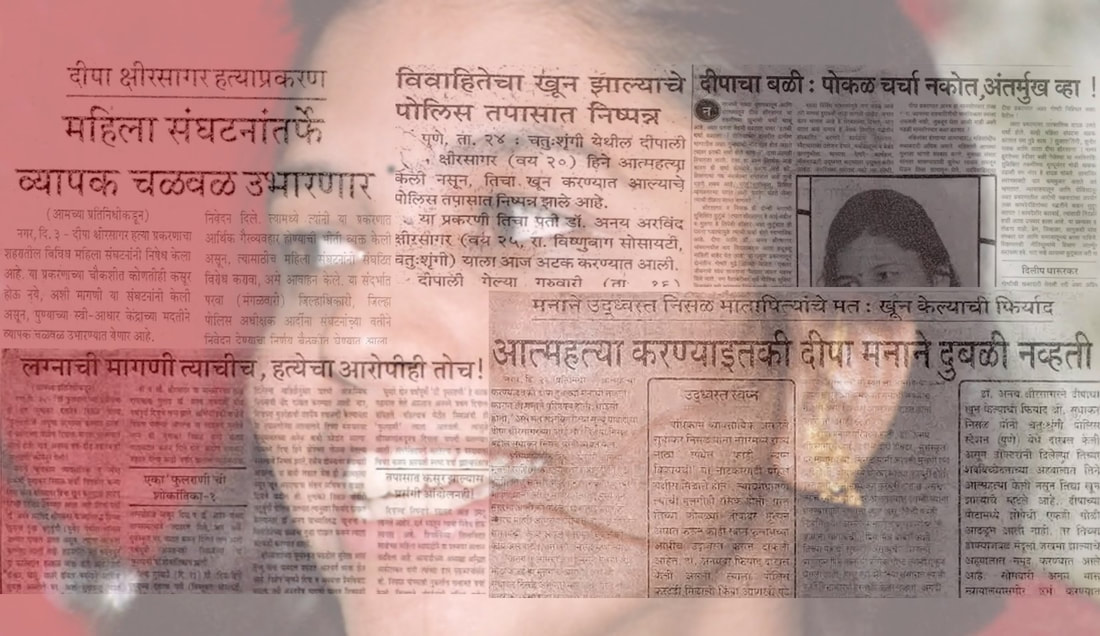
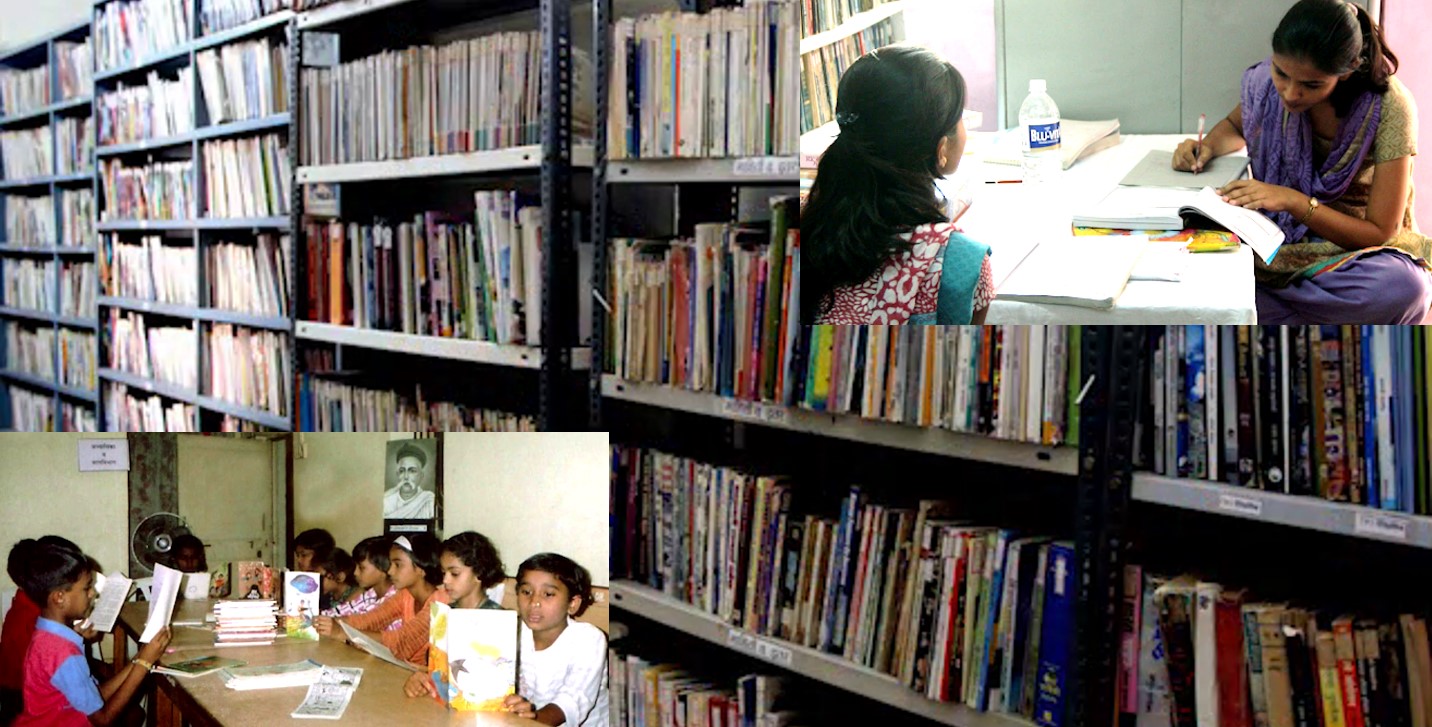
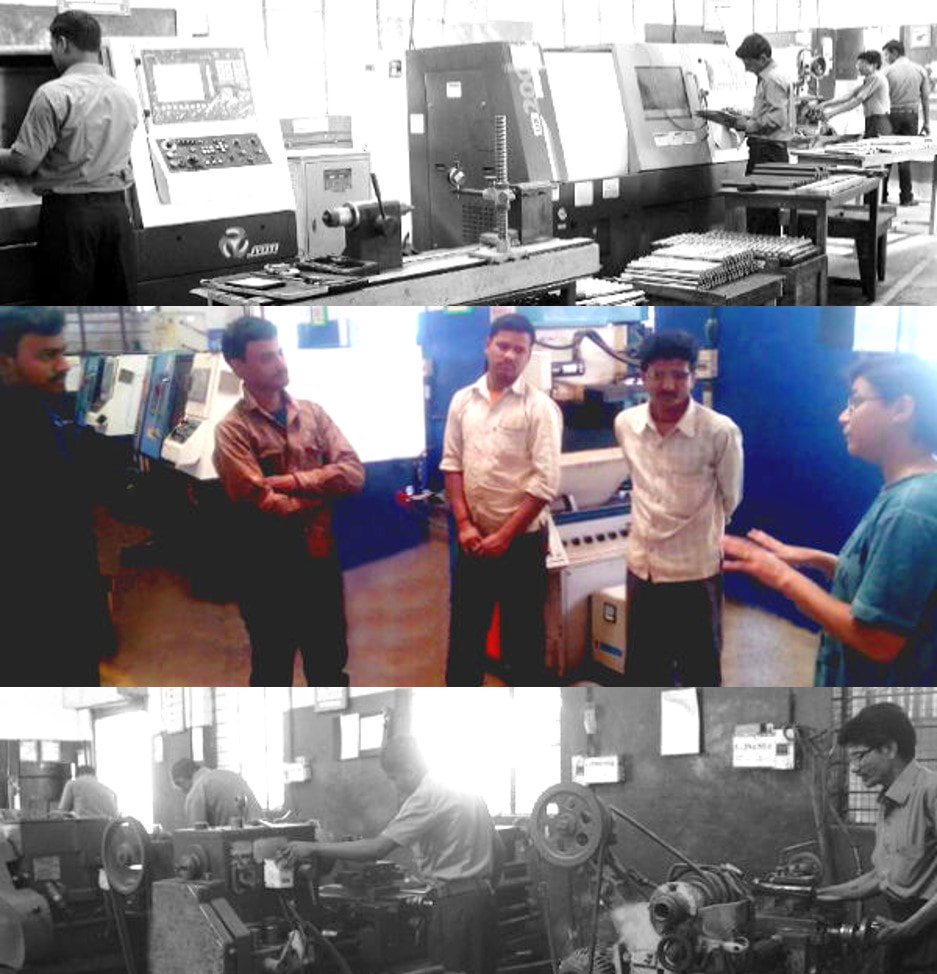
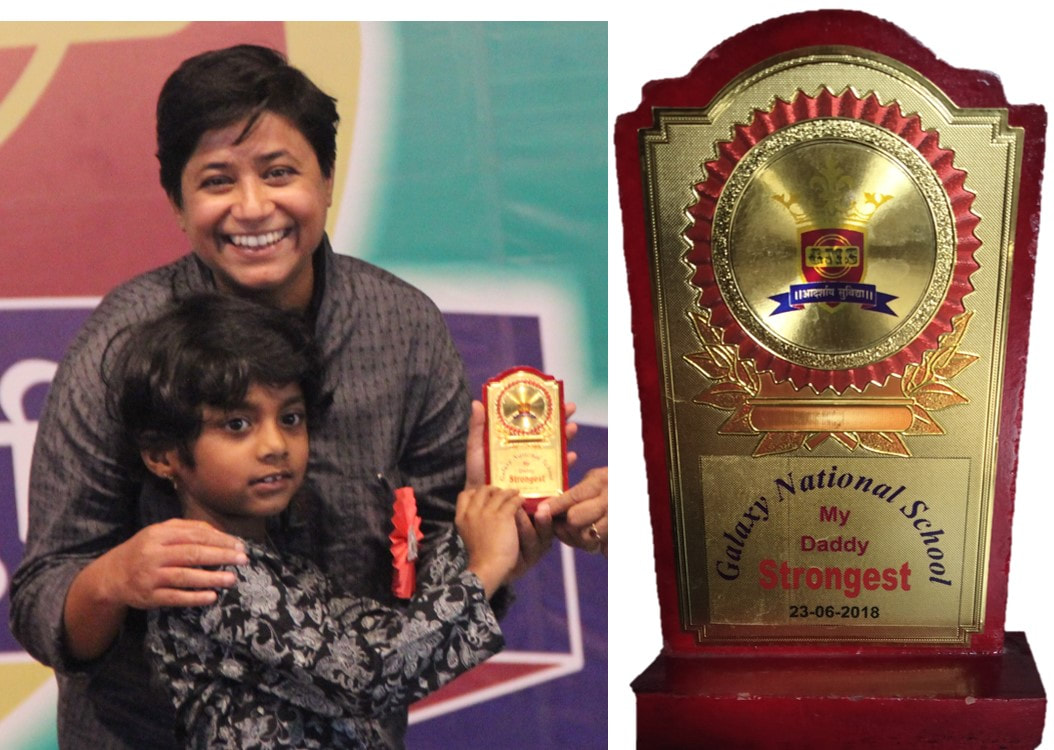
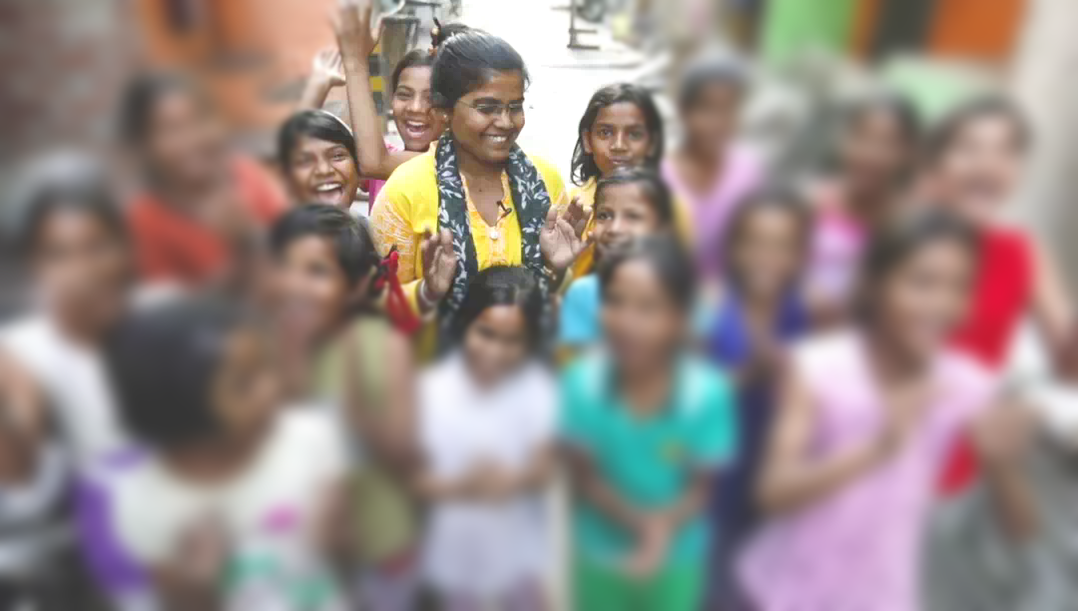
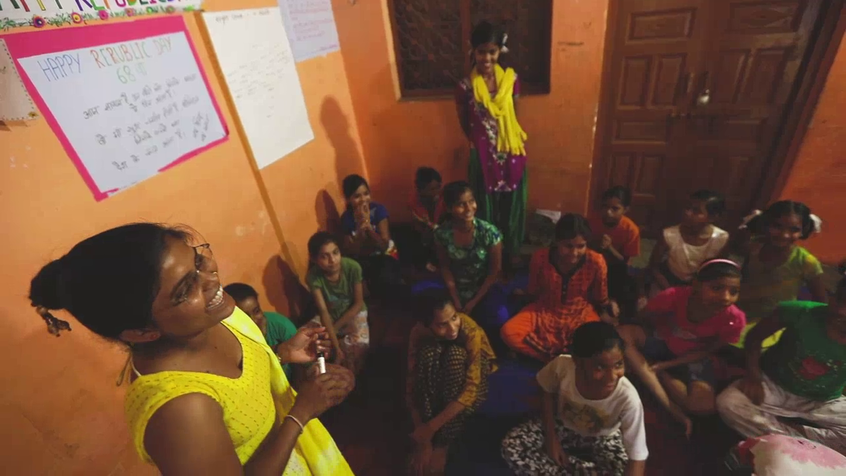
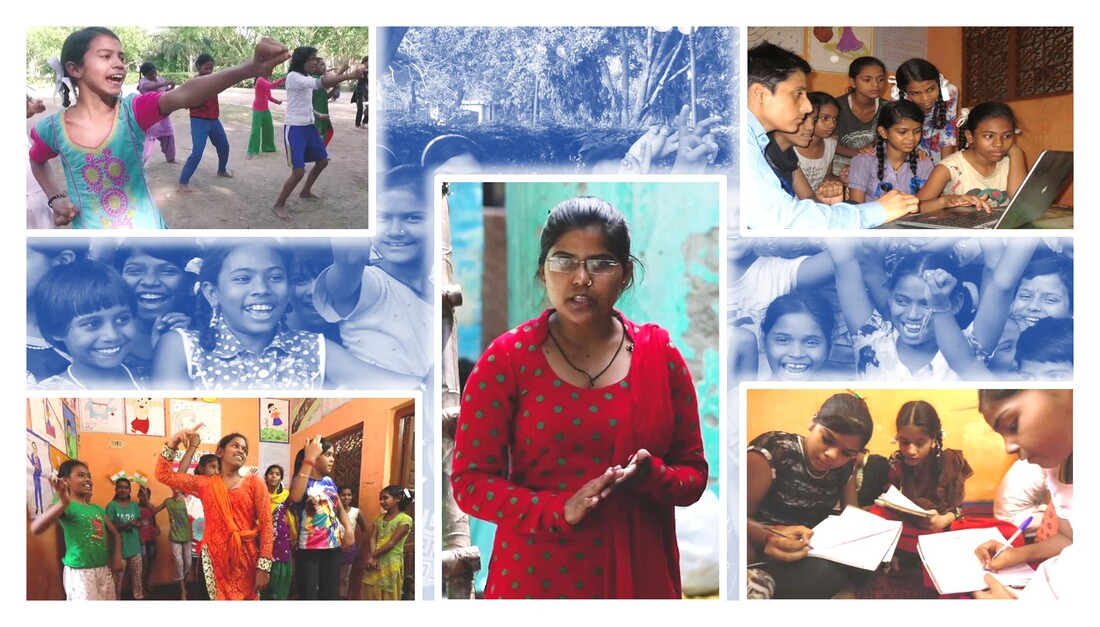
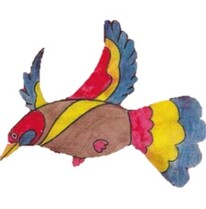
 RSS Feed
RSS Feed

